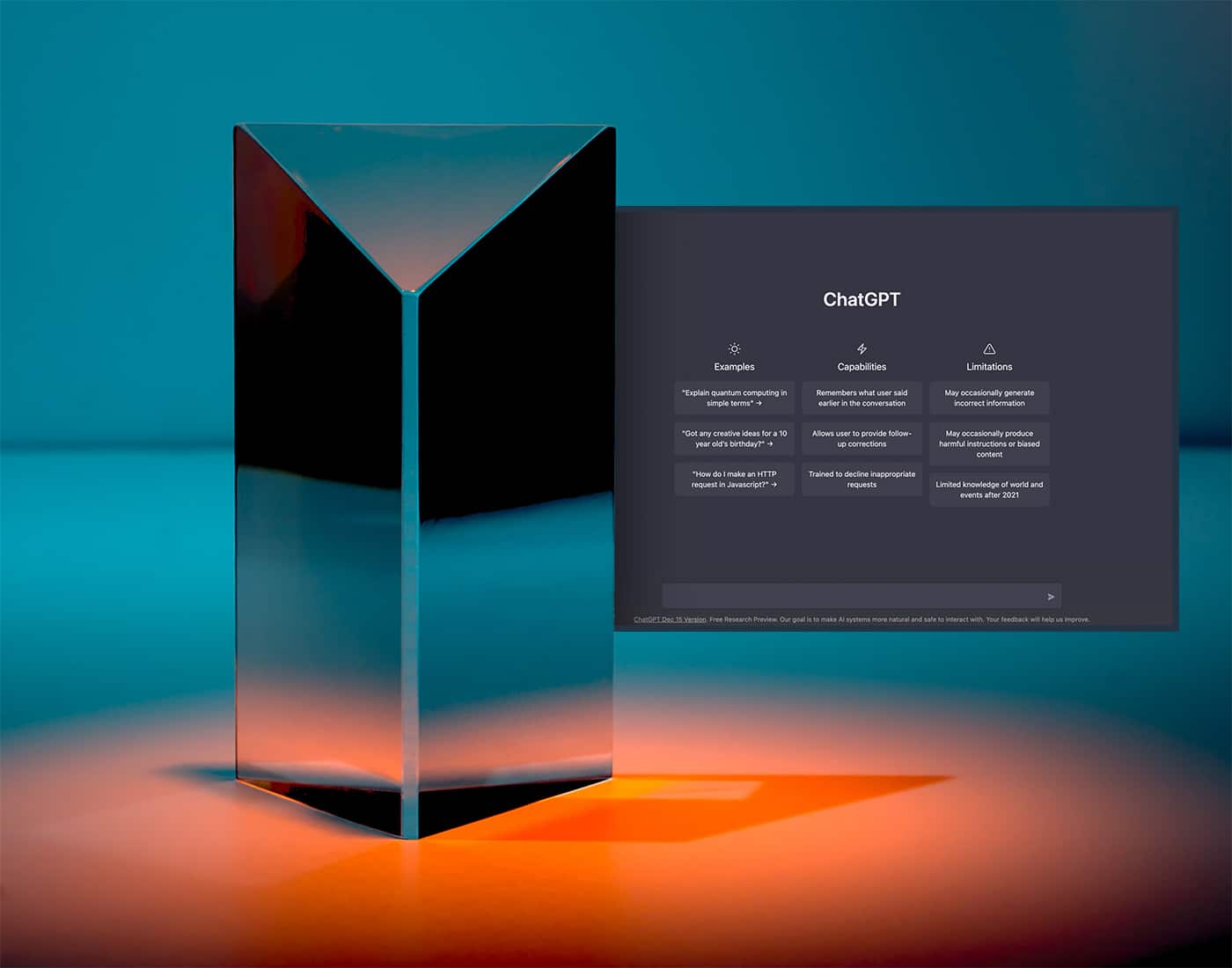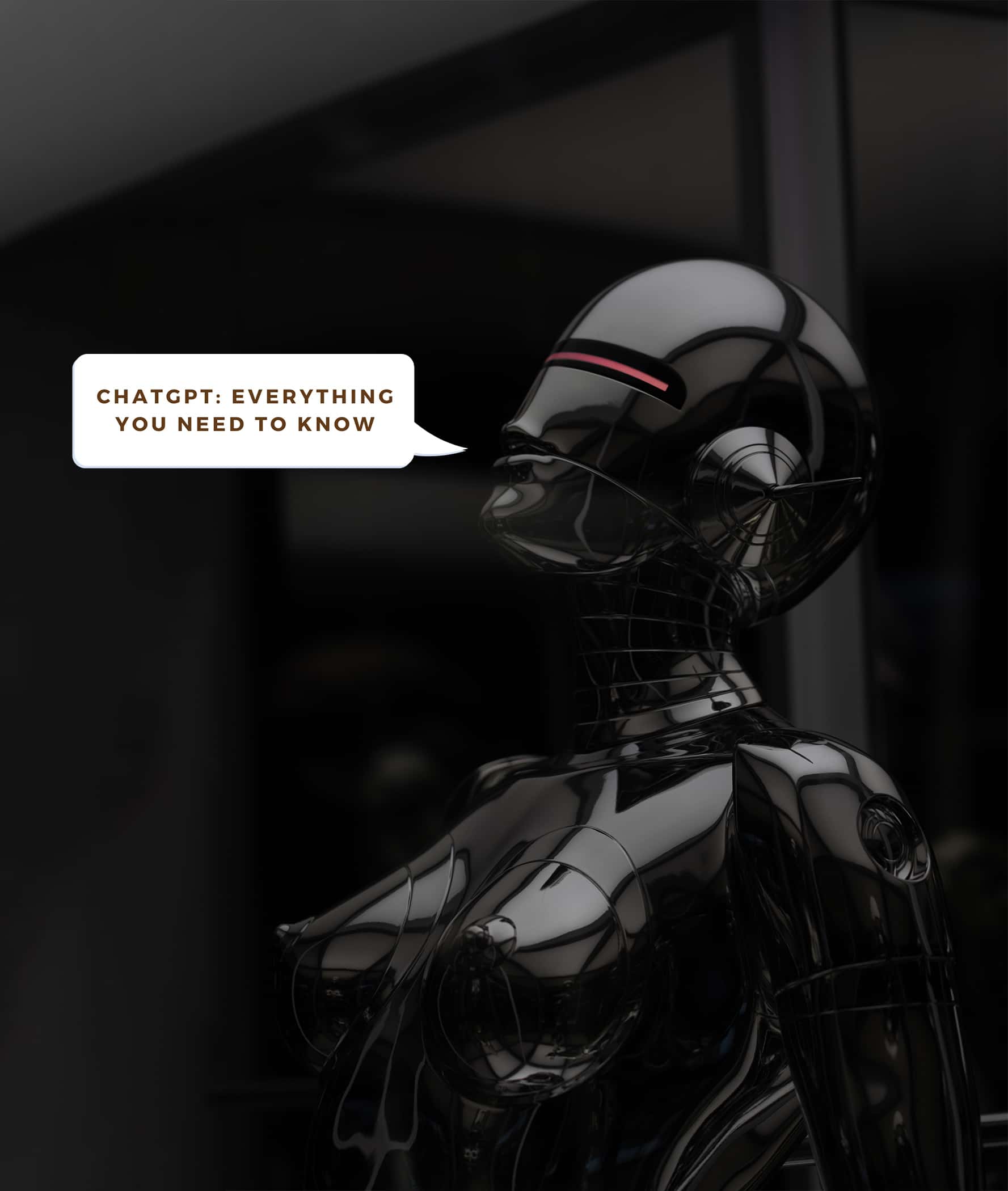ChatGPT is a natural language processing system that uses machine learning to generate responses to inputs in a way that is similar to how a human might respond. It was developed by OpenAI and is trained on a large dataset of human language, enabling it to understand and generate responses to a wide range of inputs. In this article, we will explore the capabilities of ChatGPT and how it can be used to assist with tasks such as generating code, providing suggestions for code improvements, and answering questions. We will also discuss the limitations of ChatGPT and how it compares to other natural language processing systems.
When was ChatGPT Created?
ChatGPT was developed by OpenAI and released in 2017. GPT is a type of artificial intelligence (AI) system that is trained on a large dataset of text and is able to generate human-like text as output. It has been used for a variety of natural language processing tasks, including language translation, text summarization, and question-answering.
Will ChatGPT Replace Programmers?
It is unlikely that ChatGPT or any other natural language processing system will completely replace programmers. While natural language processing systems can perform certain tasks that may be related to programming, such as generating code or providing suggestions for code improvements, programming involves a wide range of tasks that require a level of understanding and expertise that is difficult for a machine to replicate.
Programming also involves critical thinking, problem-solving, and the ability to design and implement complex systems, all of which require a human level of intelligence and creativity. While natural language processing systems can assist with some aspects of programming, they are not capable of fully replacing the role of a programmer.
Are ChatGPT Responses Unique?
ChatGPT is a natural language processing system that uses machine learning to generate responses to inputs in a way that is similar to how a human might respond. Because ChatGPT is trained on a large dataset of human language, it is able to understand and generate responses to a wide range of inputs.
Like other natural language processing systems, ChatGPT is not capable of generating completely original responses, as it is limited by the data it has been trained on. However, it can generate responses that are unique in the sense that they are not directly taken from the training data, but are generated based on that data.
For example, if ChatGPT is asked a question that it has not been specifically trained to answer, it may generate a response based on its understanding of the topic and its ability to generate coherent and relevant text. The response may not be completely original, but it will be unique in the sense that it was not taken verbatim from the training data.
Are Chatbot Responses Unique?
The responses provided by a chatbot can be unique, depending on how the chatbot is programmed and the data it has been trained on. Some chatbots are designed to provide a limited set of predetermined responses to specific inputs, while others are more sophisticated and use natural language processing to generate responses based on a broader range of inputs.
For example, a chatbot designed to provide weather updates may have a set of predetermined responses that it uses to provide the current temperature, forecast, and other information about the weather. A more sophisticated chatbot, on the other hand, may be able to understand a wider range of inputs and generate unique responses based on those inputs.
Overall, the uniqueness of a chatbot’s responses will depend on its design and the data it has been trained on.
What Are the Limitations of ChatGPT?
Like all natural language processing systems, ChatGPT has certain limitations. Some of the main limitations of ChatGPT include:
- Limited understanding of context: ChatGPT is able to understand and generate responses based on the words and phrases it has been trained on, but it may not have a full understanding of the context in which those words and phrases are used. This can lead to responses that are not fully appropriate or relevant.
- Limited ability to understand and generate novel ideas: ChatGPT is limited by the data it has been trained on, and is not capable of generating completely novel ideas or responses that are not based on the training data.
- Limited ability to understand and generate emotions: ChatGPT is not able to understand or generate emotions in the same way that a human can. This can make its responses seem robotic or impersonal.
- Limited ability to understand and generate complex or abstract concepts: ChatGPT may struggle with understanding and generating responses to complex or abstract concepts, as these may be beyond the scope of the data it has been trained on.
Can ChatGPT Write Essays?
While it is able to generate coherent and reasonably well-written text, it may not be able to write essays on complex or abstract topics to the same standard as a human writer.
ChatGPT is limited by the data it has been trained on, and is not capable of generating completely original ideas or responses that are not based on the training data. This means that it may struggle with writing essays on topics that are outside the scope of the data it has been trained on, or with generating responses that are nuanced and fully developed.
Overall, ChatGPT may be able to assist with certain aspects of essay writing, such as generating text or providing suggestions for improvement, but it is not capable of fully replacing the role of a human writer.
Can ChatGPT Write Code?
GPT, or Generative Pre-training Transformer, is a type of language model developed by OpenAI that is capable of generating human-like text. It is not a programming language and therefore cannot be used to “code.” However, GPT can be used to generate code-like text as output, which could potentially be used as inspiration for writing code or as a starting point for further modification. Is there something specific you would like to know about using GPT for code generation?
Will Chatbots Replace Google?
It is unlikely that chatbots will replace Google or other search engines. While chatbots are useful for answering specific questions and performing certain tasks, search engines like Google are designed to provide a comprehensive overview of the available information on the internet and allow users to find what they are looking for quickly and efficiently. Chatbots are most commonly used to provide information and assistance in a conversational format, while search engines are better suited for finding specific information from a wide range of sources.
Why Chatbot is Important?
Chatbots are important because they allow businesses and organizations to communicate with their customers in a convenient and efficient way. Chatbots can be used to provide information, answer questions, and assist with a variety of tasks, such as making reservations or purchasing items.
Chatbots can operate 24/7, which means that customers can get help or information anytime, without the need for a human to be available to assist them. This can help businesses and organizations to improve customer satisfaction and increase efficiency.
In addition, chatbots can be used to gather data and insights about customer preferences and behavior, which can be used to improve products and services and make more informed business decisions.
Overall, chatbots can provide a number of benefits to businesses and organizations, including improved customer service, increased efficiency, and the ability to gather valuable data and insights.







